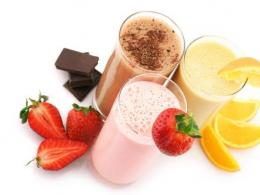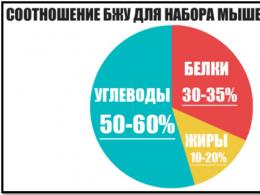Protein for weight gain - which is better?
Any athlete knows that in order to gain quality weight, there will be few regular meals. By virtue of the authenticity of this fact, all athletes who are involved in strength sports assume weight gain in their development, and one of the important elements that contributes to this is protein.
The synthesized protein supplies the body with the necessary building materials for muscle growth. In addition to protein, it is a source of amino acids and other complex vitamins and minerals that stimulate the anabolism process.
What are proteins for weight gain?

Since the field of sports nutrition has made great progress over the years, many types of protein have appeared on the shelves of sports stores.
So, the big question is, which protein works best for weight gain? In principle, each of them indirectly contributes to muscle growth in its own way, but not everyone does it effectively. Therefore, each of them takes its own position on the pedestal of useful proteins:
Whey Protein
Also referred to as "fast" protein, due to its high absorption rate. It can be produced on three bases: concentrate, isolate and hydrolyzate. That is why its nutritional value is the most balanced. In addition, it contains a sufficient amount of aminocarboxylic acids, which help to break down proteins in the body. Due to this functionality, among all types of protein, it causes the largest anabolic recall of muscle tissues. On top of all this, a nice addition is that fast protein is an excellent value for money.
Casein protein
For all its benefits, it is very slow in the absorption of protein, which is why it has a second name - "slow" protein. Professional athletes do not use it as a primary protein supplement, more as a secondary and complementary one. It is taken at bedtime, because due to its slowness, it can supply the body with important substances for a long time.
egg protein
In fact, its usefulness is worth a little higher level than whey protein. This is so because it has a high biological value: it has a large amount of amino acids and at the same time a reduced amount of fat. But its pricing policy is much higher than that of fast protein.
Multi-component protein
soy protein
Among all, it has the lowest biological value and low cleavage rate. It also contains few amino acids. But, it can also be called a budget protein option, as it is quite low cost.
By the way, if you want to buy a product that works purposefully to gain muscle mass, then we advise you to look at gainers. These supplements combine a protein and carbohydrate component, which allows you to gain muscle mass more efficiently.
How to choose protein for weight gain for men?
To date, a lot of high-quality manufacturers have made their way to the sports nutrition market, which are very popular and, when entering a sports nutrition store, their eyes widen. But, our main task is to choose the best product for mass gain.
To choose the right protein for weight gain, you need to pay attention to several criteria:
- The amount of protein in the mixture- to build the most pure muscle mass, it is recommended to buy high-protein concentrates that contain a minimum of carbohydrates and fats (isolates and hydroisolates);
- Amino acid content- a high content of aminocarboxylic acids, which actively interact with the protein, will be useful;
- Taste, color, smell - the use should be a pleasure, so you need to choose the right taste characteristics;
- Price - you should not look at the cost, from the point of view of profitability, otherwise you will not wait for the quality of the supplement. You need to choose a supplement with a decent price-quality ratio.
Most people, when choosing a protein, prefer immediately popular brands such as Optimum Nutrition, BSN, etc. Yes, you can find really high-quality proteins from these manufacturers, but only if you come across the original. Popularity brings with it a large number of fakes, and it’s not a fact that you won’t run into one of them. We advise you to pay attention to less well-known manufacturers, which, at the same time, are very popular abroad (examples will be given below)!
What is the best protein?
We invite you to get acquainted with the options of protein complexes, which today are not only the most popular, but also the best in quality. Each of these proteins contains pure whey protein, and it is always an isolate or a mixture of different protein sources, but by no means a pure concentrate.
What to take with protein?
Protein is not the only necessary supplement for an athlete, since its only task is to make up for the protein deficiency. But your body needs other substances in multiplied volume. You should also include:
- Vitamins and minerals;
- Fatty acid;
- BCAA;
- Creatine;
- Pre-workouts;
- Test boosters.
vitamins
Fatty acid
Best BCAAs
Creatine
Pre-workouts
test boosters
How to take protein for weight gain?

There is a daily intake of protein. For an adult trained man, this is approximately 2 g of protein per 1 kg of body. Therefore, from here it is necessary to calculate the total protein requirement per day, and distribute your diet so that the protein content in the substances entering the body slightly exceeds the norm. Accordingly, the calorie content increases, and the athlete begins to gain weight.
Do not forget about regular food, since protein is just a sports supplement. It will not replace all the usefulness of food. Moreover, in addition to protein, carbohydrates and healthy fats are needed.
The protein itself is recommended to be taken 2-3 times a day - in the morning and between meals. If there is casein, then we take it at bedtime, or between long meals. On training days, it is recommended to take about 3-4 times (a portion is added before and after training).
Each manufacturer puts a measuring spoon in a pack with its products, or it is also called a “scoop”. The volume of this spoon is fully consistent with the recommended one-time rate, according to the manufacturer. A typical serving size is 30 grams. But, due to the biological value of the product, the portion may vary.






